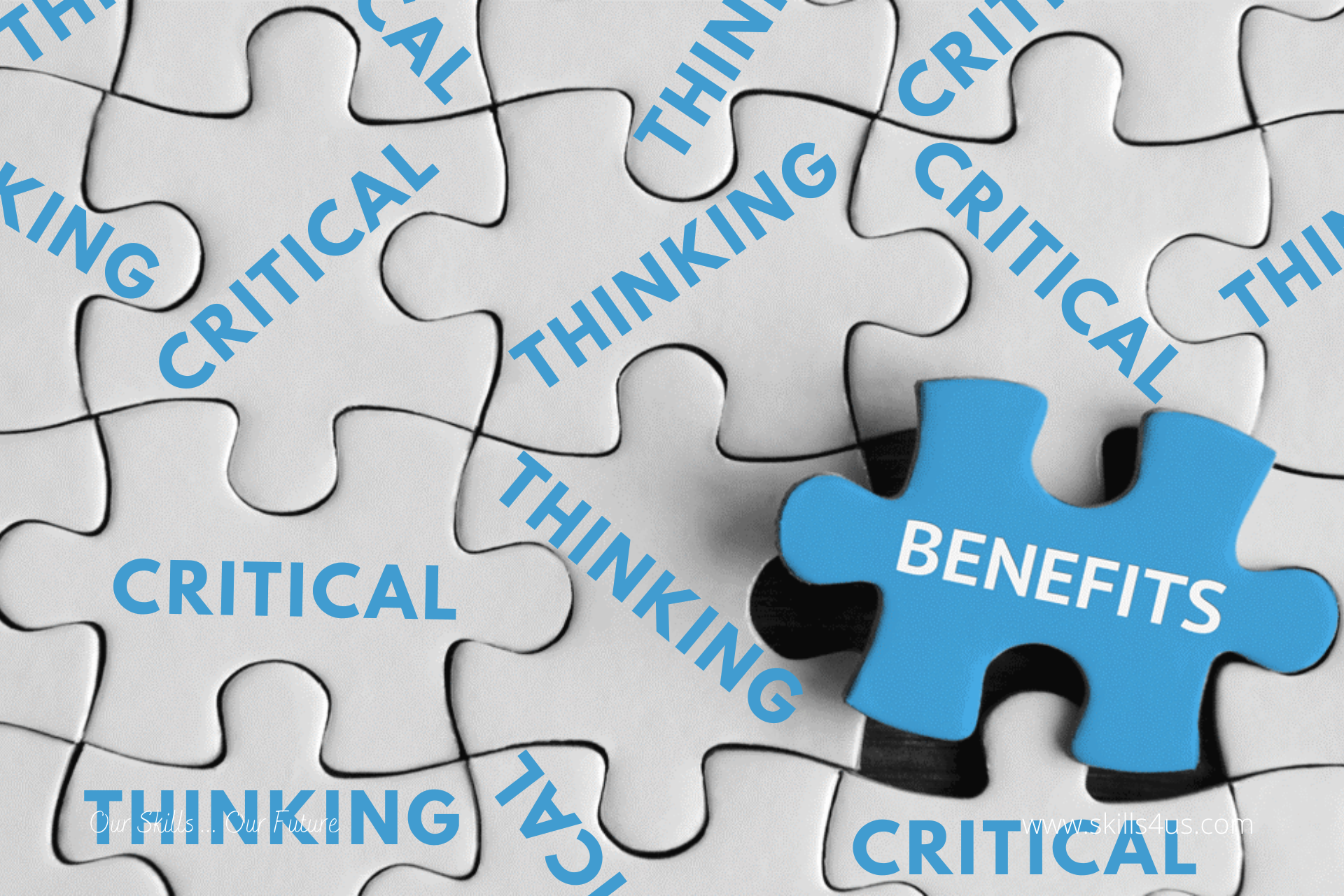Critical thinking is thinking about any topic, problem, or content. In addition, it has intellectual values such as clarity, sound evidence, accuracy, valid reasons, relevance, consistency, depth, breadth, and fairness. Moreover, one of the benefits of critical thinking is that it involves highly skilled conceptualization, analysis of different aspects, and synthesis. Most importantly, evaluate any information collected and carefully monitor and test all factors.
The Importance of Critical Thinking
Your decisions affect the quality of your life, so to ensure a better, more successful, and happier life, you want to make conscious choices. Thus, this can be done through a simple thing known as critical thinking. Hence the importance of possessing critical thinking skills, which are represented in the following aspects:
- Critical thinking is a general skill for all personal and professional life areas. Whether your path or career, these skills will always be relevant and beneficial to your success.
- Our future depends on information, innovation, and technology, underscoring the need for critical thinking for our rapidly growing economies to solve problems as quickly and efficiently as possible.
- We must practice critical thinking, think clearly and systematically, and express ourselves better. Critical thinking also means knowing how to deconstruct texts, thus improving comprehension.
- Practicing critical thinking enables us to generate new and creative ideas and analyze and modify them, allowing us to solve problems innovatively and creatively.
- We need this skill to express ourselves and justify our ways of life and opinions, as it provides us with the tools to evaluate ourselves how we need to.
- We need critical thinking to prove scientific facts and support theories with knowledge. It is known that by using critical thinking, people can form opinions about right and wrong, which leads to the effective functioning of society.
Benefits of Critical Thinking
Critical thinking is beneficial to society and individuals alike, so here are some of the benefits of critical thinking on an individual level:
1. Enhances the career path
According to the WEF, critical thinking skills are among the most sought-after skills for talent, helping them to think outside the box, analyze information, solve problems innovatively, and plan systematically. Thus, critical thinking enhances career paths and professional development.
2. Improves decision-making
In the face of perpetual daily problems, critical thinking occurs automatically to help solve these problems. Critical thinking also allows you to improve your own decision-making and decision-making process. Thus, critical thinking plays a vital role while making new professional decisions and steps that need to be taken quickly.
3. Achieves happiness
Critical thinking helps you understand yourself better, as it allows you to communicate with yourself and gain a deeper understanding of why you think the way you do, which can make you happier. Thus, it helps you avoid negative or limiting beliefs and focus more on your strengths.
4. Confirms the credibility of data and facts
Critical thinking enables us to ensure that our positions and opinions are based on facts and data. Critical thinking also helps us verify the information and data that flows and comes to us from all directions, ensuring its reliability and credibility.
5. Establishes a culture of excellence
Critical thinking builds and solidifies discernment by making people able to see the whole picture without indulging in biases. Knowing that establishing a culture of excellence brings up those people who are considered a vital basis for maintaining the growth and prosperity of society.
6. Improves relationships
Critical thinking makes you better absorb and understand other people’s points of view. It also helps you become more open to different points of view. And this leads to the improvement and development of relationships with others.
7. Raises Curiousity
Critical thinking involves constantly asking questions, wanting to know more about why and everything else that can help you understand a situation or concept, and not taking anything at face value. Thus, it raises your curiosity to find the appropriate solution to the problem or topic you are working on, as it enables you to search and go deeper to get a better result.
8. Sharpens creativity
Critical thinking enhances your creative side, makes you reach your full potential, and constantly progresses to achieve the best in your personal and professional life. If creativity is necessary for a future career, critical thinking will hone this skill for you.
9. Enhances problem-solving skills
People with critical thinking skills tend to solve problems as part of their instinct. Knowing that critical thinking enhances the problem-solving skills that make you better at your job and better at solving the most complex issues.
10. Activates the mind
Practicing critical thinking is an activity and a mental sport. Knowing that our minds need exercise and challenge to be strong. Moreover, critical thinking encourages the development of many skills essential to the mind’s activity, such as logical reasoning, decision-making, and open-mindedness.
11. Promotes independence
Critical thinking enhances our autonomy and encourages us to make decisions and form opinions. Note that when we think critically, we think about ourselves because we trust ourselves more.
12. Promotes learning
Critical thinking is critical not only to learning but to life in general. Learning helps and prepares us for life and, to a large extent, life itself. It is a lifelong process that we go through every single day.
13. Develops research skills
Critical thinking develops your research skills, helping you to research thoroughly by observing, analyzing, synthesizing, and trying every aspect in detail to get a better result.
Organizations value critical thinkers who present creative ideas and are always ready to bring innovation against the competition. Critical thinking will always allow you to stand out and make a difference regardless of your mission or role in the organization.
